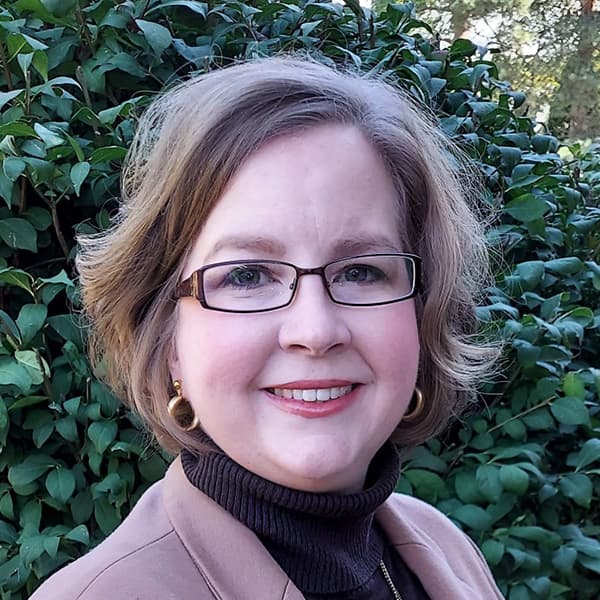By Sarah Sydlowski
This article is a part of the May/June 2022, Volume 34, Number 3, Audiology Today issue.
Audiology is amid a professional evolution. We will not be the same profession a few years from now that we are today. That is not a question. The question is, will we harness the opportunity we have right now, today, to own our story, to write our future?
The good news is, from payers, to legislators and regulators, from consumer electronics companies to the mainstream media and beyond, there is increasing recognition that hearing health matters.

President | American Academy of Audiology
The bad news is, hearing care and hearing aid are terms that are frequently used interchangeably and audiologists are often viewed as salespeople and distribution channels rather than clinical professionals. There are efforts underway to equate hearing aid dispensers with audiologists in the eyes of the federal government. The devices upon which we have tightly affiliated ourselves are becoming commodities, and the risk is that we become commodities right along with them.
Clinical decisions are being determined by nonclinical legislators. Industry is considering vertical integration strategies. Hearables might have even more impact than over-the-counter (OTC) hearing aids. We are not currently recognized or reimbursed adequately for the services and expertise we are licensed to provide.
Emphasizing the quality of our services and incorporating retail channels into our practices is not big enough, bold enough, or impactful enough to differentiate us.
Reimagining Audiology’s Core Purpose
We must think more expansively about the story of who we are and who we can be. And most importantly, we cannot be the only voices telling that story.
Audiologists have so much to offer our patients, and health care overall. We know that to be true. Recent disruptions have inspired a sense of urgency to insist that we are indispensable. We are surprised and frustrated when our message of best practices and the value of managing hearing loss early and well are overlooked in favor of focus on accessibility and affordability.
Here’s the great news—we have so much opportunity.
Hearing loss is a largely untapped market. We aren’t seeing hundreds of hearing device companies springing up because roughly 8 million people, or 20 percent of those with hearing loss (Goman and Lin, 2016), have chosen to pursue intervention. It’s because of the 80 percent who haven’t decided yet (NIDCD, 2021). That’s a market that represents phenomenal opportunity. And really, if you think about it, isn’t the market even bigger?
According to the U.S. Census Bureau, there are nearly 330 million people in the United States (2021). Nearly 100 percent of those people have ears. Most people with ears use them daily for listening to conversations, talking on the phone, enjoying podcasts, and myriad other activities.
We have limited our market to those individuals who both perceive a problem with their hearing and have decided to do something about it. We feel threatened because we have narrowed our scope and, thus, our opportunity, to much less than it could be.
Achieving Our Potential and Fortifying Our Future
If we want to demonstrate our value, create a virtuous cycle that allows us to continue to prosper and reach more people who need us, and ensure the future of our profession and our ability to practice, we must leverage our influence to demonstrate that audiologists are not just essential to the management of hearing loss.
We’re not even just critical in the management of hearing health.
We are vital to health. Period.

We can improve the entire range of the hearing experience. From hearing enhancement, to hearing protection and identification and management of hearing loss, using a variety of hearing devices from OTC to implantables, plus services, counseling, and rehabilitation. However, if we want to be effective in telling the story of audiology and delivering the value to health care and to our communities, there are several action items:
- We must be willing to bill for our services if they are reimbursable.
- We must be able to defend those clinical protocols with current, well-researched clinical practice guidelines, position statements, and other strategic documents.
- We must actively build partnerships with interdisciplinary collaborators—from endocrinologists to primary care to stroke teams—so others demand our care because they recognize our value.
- We must fund research that directly supports our ability to practice such as studies that provide evidence to the U.S. Preventive Services Task Force for mandating adult hearing screening.
- We must stop letting others dictate the path we will follow and the story we tell because we allow ourselves to be in a position of reacting to the latest regulation or legislation.
- We must envision the ideal future for healthy hearing and be the experts who can justify and deliver that target.
- We must familiarize ourselves with the value-based care environment into which our health system is evolving and consider the role we play in that model.
- We must evolve our training programs to include medically oriented prerequisites that prepare tomorrow’s professional to be a fully integrated member of a health-care team.
- We absolutely must stop believing that any of this change will happen without the concerted effort and contribution of each one of us.
- We must apply our personal influence to our payers, our legislators, our alma maters, local media, and referring providers.
- We must demonstrate our value not just through our services, or the diversity of technology we provide, but through patient-reported outcomes, objective measures, and the testimonies of our patients and nonaudiology colleagues.
- We must contribute to our Academy Foundation and to our Academy Political Action Committee (PAC) and trust they will fund the future we expect and desire.
- We must invest in our professional organizations like our careers depend on it…because they do.
Health care needs us. Our patients absolutely benefit from our care. This opportunity is ours to lose or ours to gain. We have the ears of more people than ever before. They are listening. It’s up to us to effectively tell the story of who we are and empower others to insist that we are essential to health care. If we don’t write our own story…who will?
References
Goman A, Lin F. (2016) Prevalence of hearing loss severity in the United States. Amer J Pub Health. 106(10):1820-1822.
National Institute on Deafness and Other Communication Disorders. (2021) Quick statistics about hearing. www.nidcd.nih.gov/health/statistics/quick-statistics-hearing (accessed March 20, 2022).
U.S. Census Bureau. (2021) QuickFacts. www.census.gov/quickfacts/US (accessed March 20, 2022).


